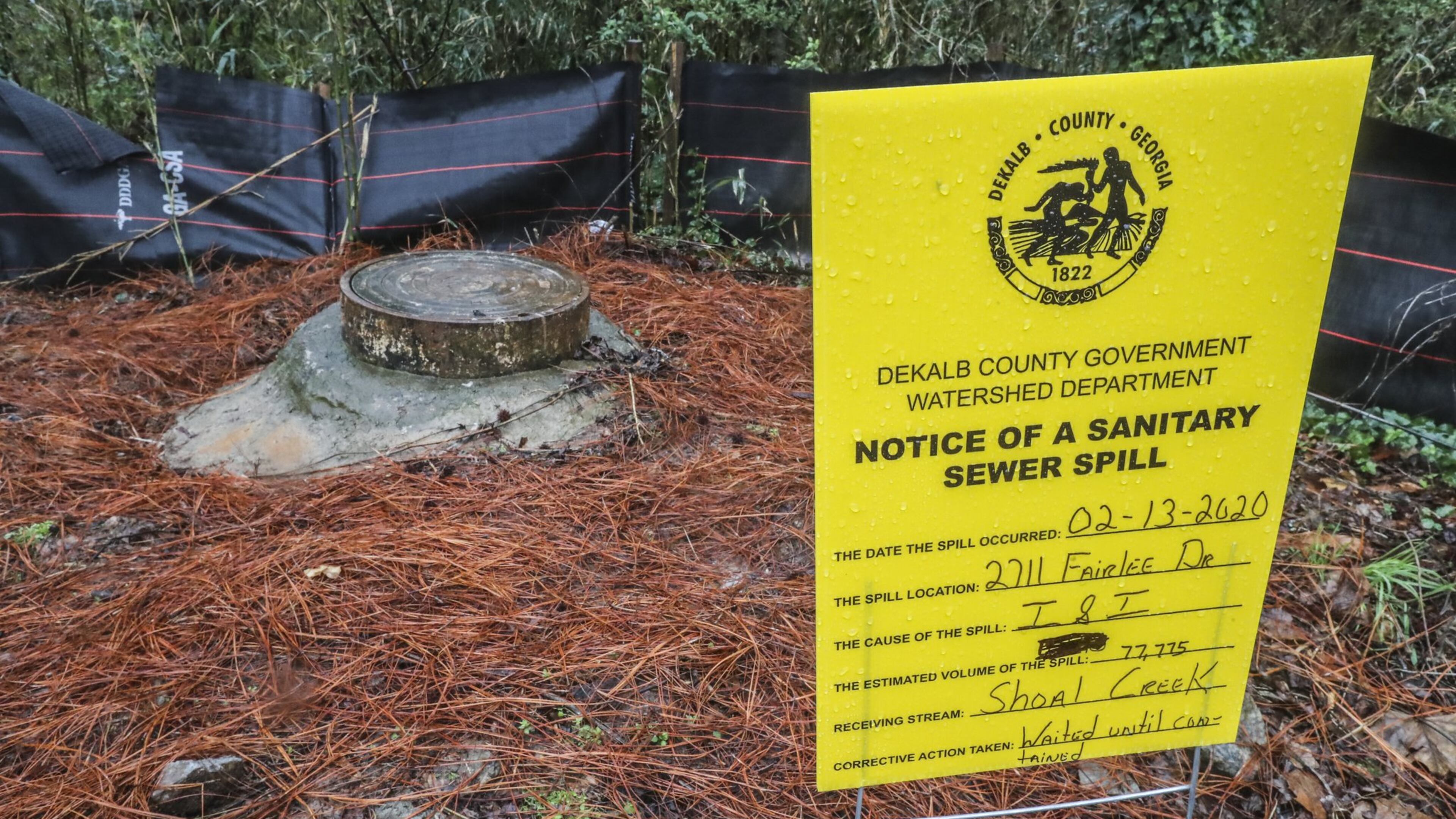DeKalb launching $438M project to repair, improve troubled sewer system

DeKalb County plans to use hundreds of millions of dollars in loans to install new sewer tanks and replace, repair and build nearly 60 miles of large sewer lines.
The majority of the cost of the $438 million project will go to the troubled Snapfinger sewer basin, which includes Decatur, Stone Mountain and southwest DeKalb, county CEO Michael Thurmond said during a Monday town hall. The Snapfinger sewer basin has experienced 21.8 million gallons of spillage this year, accounting for 91% of the county’s total spill volume.
Thurmond said the basin, which is disproportionately African American and lower-income, has been plagued by sewer spills for decades. The frequent spills meant that new businesses were not able to easily connect to the aging pipes, discoursing investment.
“One of the challenges there in the Snapfinger basin in south DeKalb is because there was so many problems with the sewer system, it was very difficult to bring new businesses to that part of the county,” Thurmond told The Atlanta Journal-Constitution.
The project will create nearly 1,900 jobs from 2021 through 2026, but Thurmond said the sewer system improvements will lay the foundation for long-term growth and development in the area.
The project was announced alongside a 7.5-year extension to the county’s consent decree with state and federal environmental regulators, which dates back to 2011. The agreement sets deadlines for sewage improvements in the county.
The county missed a June 2020 deadline for improvements and will pay a $1.05 million fine as a penalty, Thurmond said. In addition, the extension includes increased oversight by the Environmental Protection Agency and the Georgia Environmental Protection Division. Update reports on priority sewer area improvements will also be sent to a federal court, further expanding oversight.
The town hall comes weeks after the county suffered roughly 7.3 million gallons of spilled sewage due to the remnants of Hurricane Delta — an increase of about 4.5 million gallons over initial estimates. The Snapfinger sewer basin also suffered 91% of those spills.
Sewer spills can send harmful pathogens, such as E. coli, into local waterways, creating a public health threat. Spills also heavily impact the environment by affecting wildlife and killing fish.
“We are trying to address what was long in the making,” Thurmond said during the town hall. “Quite frankly, when you neglect infrastructure, two things result: it’s time consuming to go fix it and it’s extremely expensive.”
The county recently applied for about $340 million in loans to fund the upcoming sewer repairs and improvements. Those loans alone will nearly cover the planned projects in the Snapfinger basin, which are estimated to cost $363 million. The projects include about 41 miles of sewer lines that range from 30 inches to 72 inches in diameter, along with two 20-million-gallon storage tanks. The rest of the county will get roughly 18 miles of improved sewer lines.
Over the next four years, 103 sites that have suffered repeat spills must be addressed, according to the county’s federal consent decree extension. Stipulated penalties for missing deadlines in those areas have been increased.

